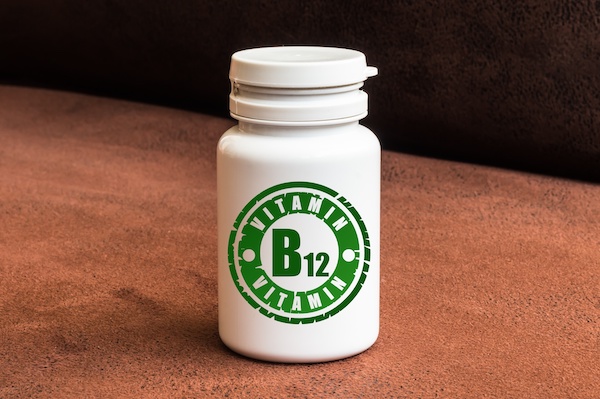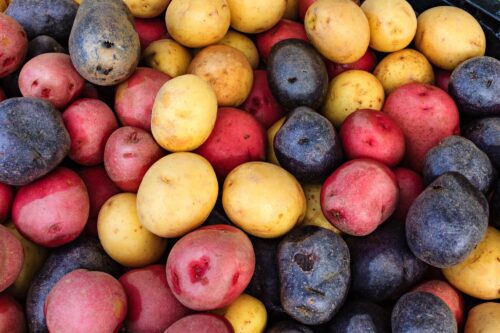What is the Best Formulation of Vitamin B12?

Vitamin B12, also called “cobalamin,” is one of the eight water-soluble vitamins that play a key role in the metabolism of every cell in the human body, and is especially important in the normal functioning of the brain and nervous system, DNA synthesis and the formation of red blood cells.
Only bacteria have the enzymes needed for the synthesis of various forms of Vitamin B12. No fungi, plants, or animals can make vitamin B12. However, animal tissues significantly store vitamin B12, which is made from bacteria that they have consumed. This is the reason that meat, poultry, eggs, fish, and dairy foods are recommended sources of B12 in people’s diets. Those of us who follow a vegan diet (no animal foods) are often told we must eat animal foods or risk developing deficiency of this essential vitamin.
Fortunately, we live in a world naturally populated with trillions of B12-producing bacteria. Plus our mouth and large intestine are very large reservoirs of B12-synthesizing bacteria. The various sources of bacteria in our environments supply sufficient amounts for most people, and as a result, actual cases of vitamin B12 deficiency disease due to lack of sufficient oral intake are very rare.
There Are 4 Common Forms of B12
Three natural forms of vitamin B12 are commercially available: methylcobalamin (MeCbl), adenosylcobalamin (AdCbl), and hydroxycobalamin (OHCbl), all of which have been shown in clinical studies to improve the vitamin B12 status of individuals. Because these three forms are biologically identical to those found in our tissues, they would seem to be preferred.
The fourth form is cyanocobalamin (CNCbl). This is a synthetic B12 compound sold commonly as supplements and used for food fortification. All four forms (natural and synthetic) are converted in the body into the metabolically active molecule cobalamin. However, some people do not efficiently make this conversion with the “cyano” products. Plus the cyanide portion of the cyanocobalamin molecule accumulates in the body. Cyanide is a well-known poison that was once used as a chemical warfare agent that can cause death. In small doses, as taken in vitamin B12 supplements (cyanocobalamin), cyanide may have long-term toxicity. Early symptoms of mild cyanide toxicity include headache, dizziness, fast heart rate, shortness of breath, and vomiting.
Assimilation and metabolism of various forms of B12 (cobalamin) differ in people. The way to discover how you respond to a particular form is determined by an inexpensive vitamin B12 blood test. Normal vitamin B12 blood levels are above 150 pg/ml (picograms per milliliter). However, many laboratory references consider normal to be above 200 pg/ml, and some clinicians suggest levels, especially in older people, to be above 500 pg/ml.
My Recommendations for Vitamin B12 Supplementation
Over the past 40 years I have been recommending that people who follow my diet, which is based on starches, vegetables, and fruit, take a vitamin B12 supplement. The body efficiently stores and reutilizes B12, and as a result, people on the standard American diet accumulate at least a three-to-eight-year supply of this vitamin.
The daily requirement of B12 is less than 1 microgram (one-millionth of a gram). However, just to be on the safe side, my recommendation has been to take a supplement of 5 micrograms daily. When you look for B12 supplements in the store, the smallest doses available are 500 micrograms in liquids, capsules, and tablets. Fortunately, there is little known toxicity from an overdose of cobalamin. With amounts of a hundred times greater than needed, rather than taking daily, a safe regime could also be 500 micrograms weekly. This dose can be swallowed or dissolved sublingually under the tongue.
Dr. McDougall’s recommendation is to take the hydroxyl, methyl and/or adenosyl forms (not the cyano form due to the toxicity from chronic cyanide accumulation). After taking any of the individual forms for three months, you should have your blood tested.
While there isn’t a single supplement that combines all three forms of B12, we recommend finding a reputable brand that works for you and using all three forms in your supplementation regimen. There are many high-quality, trusted brands available both online and in stores, and we encourage you to choose one that suits your preferences and needs.
Learn more about B12 in Dr. McDougall’s article, Vitamin B12 Deficiency – the Meat-eaters Last Stand.
Recommended Articles

The Scientific Publications of Dr. Walter Kempner: Creator of the Rice Diet

The Power of Potatoes: A Nutritional Staple for Health






